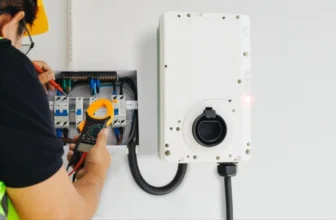How Long do Boilers Last? How to extend the life of your boiler?
The average Boiler Lifespans or life expectancy for the boiler is between ten and fifteen years.
Your boiler is the heart of your home and is also a huge investment. So, it is understandable why you want your boiler to remain running for as long as it can. Extending the life of your boiler will also mean not having to pay more in the long run for replacement parts or a full boiler replacement. Following through this guide you will find tips on how to make your boiler last even longer!
Continue to read now to learn How Long do Boilers Last and boiler lifespans.
Service your boiler annually
To start off with, annual boiler service. You will want to make sure that you are getting your boiler serviced once a year. You will want to schedule this service for late spring or summer. This way if there are any faults found and your boiler cannot be used for a time it should be warm weather. Do not get service during autumn or winter as this could end up meaning you will be stuck without heating for a time.
Servicing your boiler means that any faults are found early on and can potentially stop an even bigger fault later on down the line. This way your boiler will continue to stay healthy for longer. Make sure that when you book your annual service it is with a gas safe registered engineer. Not using a gas safe registered engineer could result in your boiler’s warranty being voided, which could cost you a lot of money further down the line. Your boilers’ current warranty may also include a free boiler service for so many years, so check your warranty before booking.
Bleed your radiators
Bleeding your radiators is another vital aspect of making sure your boiler will last longer. Bleeding your radiators is the process of releasing trapped air that is built up causing your radiator to not heat up properly. You can tell if your radiator needs bleeding as it will not heat up evenly and will remain cold at the top. This can cause more pressure on your boiler, which can reduce its lifespan.
Bleeding your radiators is a simple task and should not take you too long. There are plenty of guides on how to bleed your radiators online that will go through the process in detail. Make sure that you are bleeding your radiators once a year even if there are no issues. This way both your radiators and boiler will remain healthy.

Boiler Lifespans
Add an inhibitor
Adding an inhibitor is a great step to put in place for protecting your heating system against limescale and corrosion that happens over time in your boiler. This build-up forms into a sludge that can cause blockages in your boiler’s pipes. An inhibitor stops this build-up and blockage by adding a protective coat to the metals in your boiler which stops the corrosion and limescale.
An inhibitor liquid can be added by a heating engineer, so it may be worth asking them to do this upon your next boiler service. You can add the inhibitor yourself however it is advised to use a heating engineer as they are the experts. Often if you cause damage to your boiler yourself while trying to fix it, this will also void your warranty.
Install a magnetic filter
A magnetic filter is another great addition to add to a boiler to stop the build-up of corroded materials. The material that causes clogging in pipes is often the corroded metal from the pipes inside your boiler. The magnetic filter is installed on the return pipe of your heating system, this way the corroded metal is caught before it enters your boiler again. The filter will need to be cleaned out eventually due to it catching a build-up of sludge. This is usually done by your heating engineer during your annual boiler service.
This magnetic filter needs to be installed by a heating engineer as it is a complex process of attaching it to the return pipe. It can be a costly installation at anywhere between £100 – £200 depending on your chosen filter plus labor costs. But in the long run, they are worth it as they will reduce your need for future repairs and even prolong a full boiler replacement.
Turn your boiler on during summer still
Using your central heating in summer may seem like a silly idea as the weather is already hot outside. However, running your central heating during summer, for at least 15 minutes each month is advisable for a healthy boiler.
By turning on your central heating for around 15 minutes each month during summer, your boilers’ mechanical parts are still working. There is no plus side to not having your heating on. But not having your central heating on for those 15 minutes means that problems could happen when they do start working again in the colder months.
Powerflush your system
A powerflush can often be seen as a last resort. It is not something that is done regularly however if you have not been looking after your system but would like to, it is a good place to start. This should not be the case however if you have been looking after your system or have a new central heating system.
A powerflush is needed when there is a large build-up of sludge from the corroded metal and limescale. The sludge will cause your radiators to not heat properly, which you cannot fix by bleeding them this time.
A heating engineer will then need to be contacted to conduct a powerflush. The heating engineer will use a powerflush machine to fire a mixture of water and a cleaning agent at very high pressure through your heating system. This will then clear the sludge from your
system, allowing you to begin the process of looking after your boiler. This is an expensive process so make sure that you look after your heating system once it has been completed!
Those are six tips that should go towards making your heating system last longer! If you follow these tips for How Long do Boilers Last, you should see your boiler staying healthier and lasting longer.
You can leave any comment here for Boiler Lifespans and How Long do Boilers Last!








